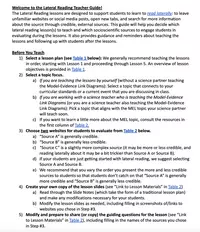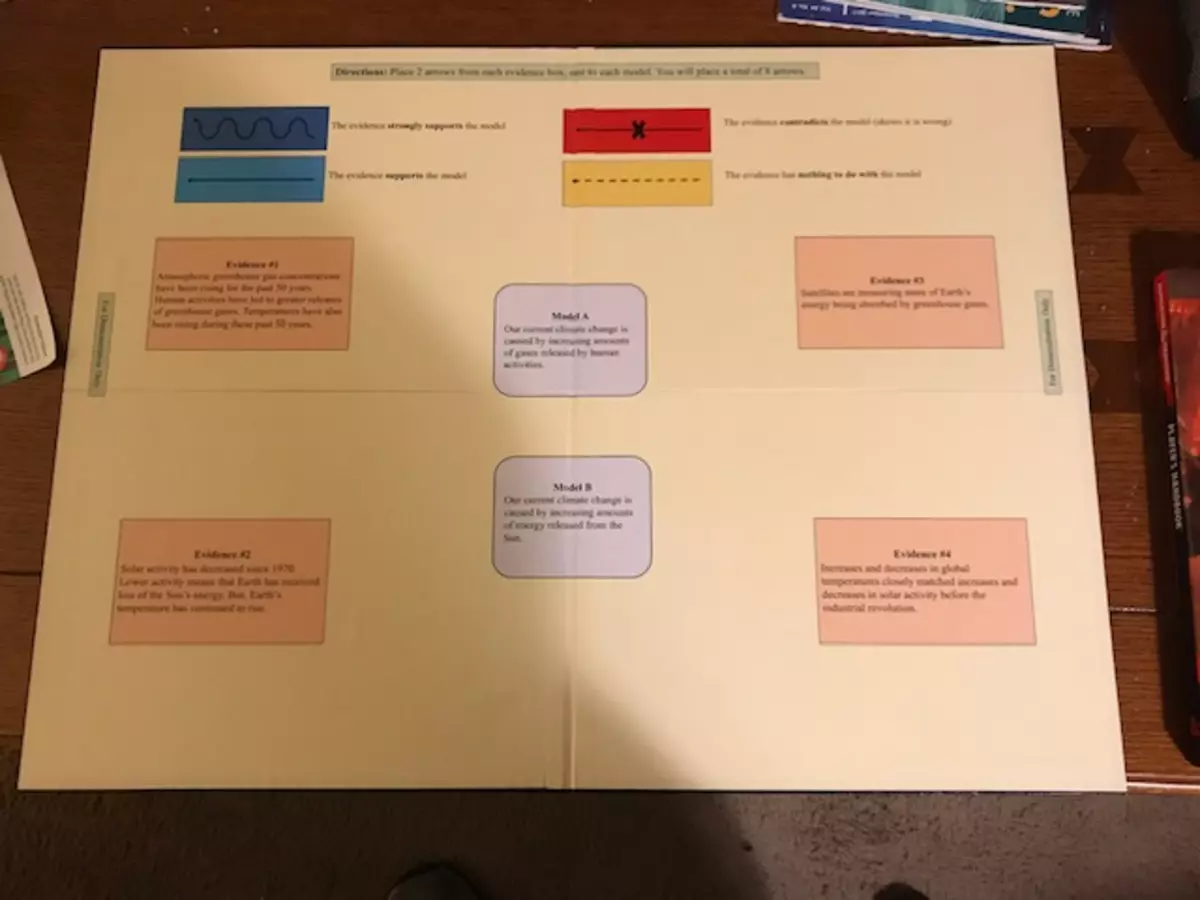Initial Publication Date: May 14, 2018
Teaching Resources
The LR-MEL Project has developed a set of teaching resources to promote students' civic and scientific evaluations of sources and alternative claims when confronted with controversial and/or complex socioscientific issues in the Earth and environmental sciences. We provide five lesson plans and guidelines for teaching lateral reading strategies. We provide MEL activities for teaching socioscientific issues about climate change, dead zones, energy, extreme weather, fracking, freshwater, fossils, moon formation, nuclear energy, origins of the universe, soil & food security, and wetlands. All materials are freely available under a Creative Commons Attribution-NonCommercial-ShareAlike license. You may reuse these materials for non-commercial purposes as long as you provide attribution and offer any derivative works under a similar license. Credit the Science Learning Research Group, University of Maryland, for the development of these materials.
Lateral Reading Teaching Resources
- Start here: Lateral Reading Teacher Guide
- Lesson 1: Intro to Credibility
- Lesson 2: Introducing & Modeling Lateral Reading
- Lesson 3: Debunking Unhelpful Evaluation Strategies
- Lesson 4: Resources for Lateral Reading
- Lesson 5: Lateral Reading Review
MEL Activity Teaching Resources
- Climate Change
- Dead Zones
- Energy
- Extreme Weather
- Fossils
- Fracking
- Freshwater
- Moon Formation
- Nuclear Energy --Coming Soon
- Origins of the Universe
- Soil and Food Security
- Wetlands
In the Classroom
- MEL Project Teacher Guide (Acrobat (PDF) 4.6MB May24 21)
- Evaluating Sources, Models, and Evidence in Research Articles
Science in the News - NGSS Assessment of Scientific Practices and Cross-Cutting Concepts in the MEL Explanation Task
MEL Explanation Task Rubric (Acrobat (PDF) 80kB Jan31 22)
Reference List for Model-Evidence Link Diagrams Project
- pcMEL baMEL Reference List (Acrobat (PDF) 6.9MB Jan31 22)
pcMEL/baMEL Gameboard
Some teachers like to create large "gameboard" versions of the pcMEL/baMEL diagram. The components included in the Teaching Resources section are designed for letter size paper. The components below are for an 18 X 24 inch version.
Components
- Download the full size MEL/baMEL Gameboard image here. Do not right-click or control-click to save the image above as it is reduced for web display.
- Arrow Cards (Acrobat (PDF) 73kB Jun26 19)
- Dead Zones Large Model Cards (Acrobat (PDF) 124kB Jun13 23)
- Dead Zones Large Evidence Cards (Acrobat (PDF) 33kB Jun13 23)
Project Support
The Lateral Reading-Model-Evidence Link Diagrams project is supported in part by the NSF under Grant Nos. DRL-2201012, DRL-2346657, DRL-2201015, DRL-2201016, DRL-2201017, and DRL-2201018. Previous support came from Grant Nos. DRL-2201013, DRL-2027376, DRL-1721041, and DRL-1316057. Any opinions, findings, conclusions, or recommendations expressed are those of the authors and do not necessarily reflect the NSF's views.




![[creative commons]](/images/creativecommons_16.png)
